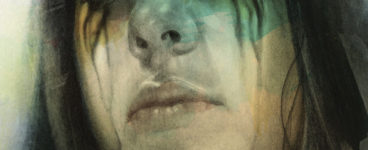‘Two of the men lay clinging on to life, and both would die in the next few days. One of them was Police Watchman Dugald Campbell, the other a clerk, James Campbell. Dugald was the first police officer to die while on duty in Scotland.’
A time before police patrol cars, radio, helicopters, drones and specialised equipment became everyday resources for those on duty, Gary Knight’s Fatal Duty details officers killed Scotland from the 1810s to 1950s, and those responsible for their deaths. Read an excerpt on Hogmanay 1811 below.
Fatal Duty
By Gary Knight
Published by Tippermuir Books
On Hogmanay 1811 (the night of 31 December 1811 and 1 January 1812), those Edinburgh street gangs – known in the city as ‘Thief Gangs’ – based in Niddry Street, the Canongate, Calton and the Grassmarket, joined together to attack and rob those out enjoying the turn of the year. At sunrise on New Year’s Day, many ‘gentlemen’ lay in the hospital, battered and bruised. They were picked up from the street after lying prostrate amongst the shattered glass from seventy streetlamps, smashed during the turmoil of violence and destruction. Two of the men lay clinging on to life, and both would die in the next few days. One of them was Police Watchman Dugald Campbell, the other a clerk, James Campbell. Dugald was the first police officer to die while on duty in Scotland.
Young apprentice boys would often meet at the bottom of Niddry Street after work at around 9pm. They would pick quarrels with people and often lash out using fists and kicks. Sometimes they would crowd around a passer-by as they walked along the street. A blow of a whistle or a predefined word or phrase would be cried out – this was the signal to attack and rob this unsuspecting victim.
In the days before the New Year celebrations of 1812, these gangs had met up. The youths planned to work together and had decided to give the police a licking. These young ruffians were anxious to get their hands on a police officer called Murray, whom they despised as he often chased them off the North and South Bridges. The gangs had armed themselves with sticks cut from trees in the city’s Meadows.
At 11pm on 31 December 1811, the gangs took to the streets. The affluent were attacked and robbed, often beaten during the assaults. The police turned out in large numbers and tried to keep order in the busy, bustling streets. They managed to drive the gangs out of Hunter Square and off the South Bridge. On the Royal Mile, gang members chased a police officer up the road – he was tripped as he ran and fell to the ground. The gang set about him, hitting him over and over with sticks. A cry of ‘It is the Royal Arch!’ seemed to intensify the beating the man received. Royal Arch was the nickname the gangs had given to Dugald Campbell, who was despised by the young hoodlums. A few people tried to step in and protect the police officer, but they were driven back by the gang members. By the time the gang left to search for new victims, Campbell was lying motionless in the entrance to Stamp Office Close (today Old Stamp Office Close) in a pool of his own blood. He was lifted and taken to the nearby police office, but he was unable to talk and died three days later.
In the days and weeks after the events, the shaken authorities rounded up those they believed to be involved in this unrest. Three men were arrested in connection to the murder of the police officer: Hugh MacDonald, Neil Sutherland and Hugh MacIntosh. Sutherland and MacIntosh had fled to Glasgow where they were picked up and taken back to Edinburgh.
All three were tried at the High Court in Edinburgh on 20 March 1812. The charges were:
- The murder of Dugald Campbell, police watchman, at the head of Stamp Office Close.
- Knocking down Ensign Humphry Cochrane, of the Renfrew Militia, on the High Street, and robbing him of a silver watch, a watch chain of gold, two guineas and two one-pound notes, five shillings in silver, a neck handkerchief and a silk pocket handkerchief.
- Knocking down Mr Roger Hog Lawrie, a writer’s clerk, on the North Bridge, and robbing him of a seal set in gold, part of a watch chain of gold, a gold watch key and five shillings in silver.
- Knocking down Gustavus Richard Alexander Brown, Esq, on the North Bridge, and robbing him of four pounds sterling in notes, ten shillings in silver, a penknife and a round hat.
- Knocking down Mr Francis James Hughes, near the Tron Church, and robbing him of a gold repeating watch, a gold watch chain, four seals set in gold, a gold watch key and a round hat.
- Assaulting Mr Nicol Allan, Manager of the Hercules Insurance Company, near the Tron Church, and robbing him of a yellow metal hunting watch, a gold watch chain, two seals set in gold, a gold watch key, and 14 shillings in silver.
- 7. Knocking down Mr Duncan Ferguson, writer, near Barclay’s Tavern, Adam Square, and robbing him of a gold seal, a gold watch chain, a round hat and nine shillings in silver.
- Assaulting Mr David Scott Kinloch MacLaurin, on the South Bridge, and robbing him of two gold watch cases, a pocket-handkerchief, a round hat and six shillings.
- Knocking down Mr John Buchan Brodie, writer, on the North Bridge, and robbing him of a watch with a shagreen case, a watch ribbon, four seals set in gold, a gold watch key, a blue Morocco leather purse containing a Bank of Scotland one-pound note, a seven-shilling gold piece, eight shillings in silver and a round hat.
- Assaulting Mr Duncan MacLauchlan, student of medicine, on the South Bridge, and robbing him of a round hat, a pocket-handkerchief and a pair of gloves.
- Knocking down Mr Peter Bruce, student of medicine, on the South Bridge, and robbing him of a green silk purse, five shillings and sixpence in silver, a gold ring and a round hat.
All three pled not guilty.
—
Duncan Fergusson, a clerk, said that on the night in question he was drinking in Barclay’s Tavern in Adam Square. (The pub no longer exists but was located somewhere between the George IV Bridge and the South Bridge.) Fergusson left at about midnight. When he and a companion reached the South Bridge, they were attacked. Fergusson was knocked down but did not realise that he had been robbed; it was only after returning to the tavern that someone pointed out his watch was missing. Fergusson noticed that along with the watch, his seal and money had also been taken.
The next witness was John Brodie, who stated that at 12.30am he was passing Milne’s Square at which point he saw young men carrying large bludgeons. Brodie told the court that he initially thought that the armed men had been fighting each other. Suddenly one of the men struck him a violent blow. During the attack, Brodie called for the police, but the attacker sneered, ‘Your police is long gone’.
Brodie was struck again and fell unconscious. When he came round, he could feel two sets of hands rifling through his pockets. A third person ripped his watch from him, and a little boy took his hat. When asked if he could identify any of his attackers, he looked at the dock and stated that Neil Sutherland could be the one who struck the first blow.
—
With all these witnesses for the prosecution, things were not looking good for the three accused. However, witnesses did come forward for their defence. Margaret Ross, a thirteen-year-old girl, said that she saw MacDonald at home on the night in question between 9pm and 10pm. Although he was drunk, he remained indoors until after midnight. Two of MacIntosh’s work colleagues, George Petrie and John Riddel, both shoemakers, stated that on Hogmanay night the accused worked late: till near 12am. Janet Ross, who was the sister of Margaret, lived in Blair Street. She said that she had known MacDonald for a long time and that she thought him a good character, mild and obliging. Shoemaker James Cameron thought MacDonald a sober, innocent, regular man, and he went on to say that he had confidence in him as honest and faithful. James Anderson who had employed MacDonald for four months stated that MacDonald was sober, honest and respectable. Joseph Petrie described Sutherland as a quiet youth.
The jury retired at 4am on 21 March and nine hours later the judge was told a verdict had been agreed. A guard of the Edinburgh Volunteers was stationed in and around the court to keep the peace.
Fatal Duty by Gary Knight is published by Tippermuir Books, price £9.99
ALSO IN THIS ISSUE

 Look Where You Are Going, Not Where You Have Been
Look Where You Are Going, Not Where You Have Been
‘I should have been pleased, and I was, briefly—my plan to rescue Constance was in early motion. But …

 Some Rise by Sin
Some Rise by Sin
‘Facey tips him the wink. Shields nods and slips away. Jack Stirabout turns and warms his bum, but r …













